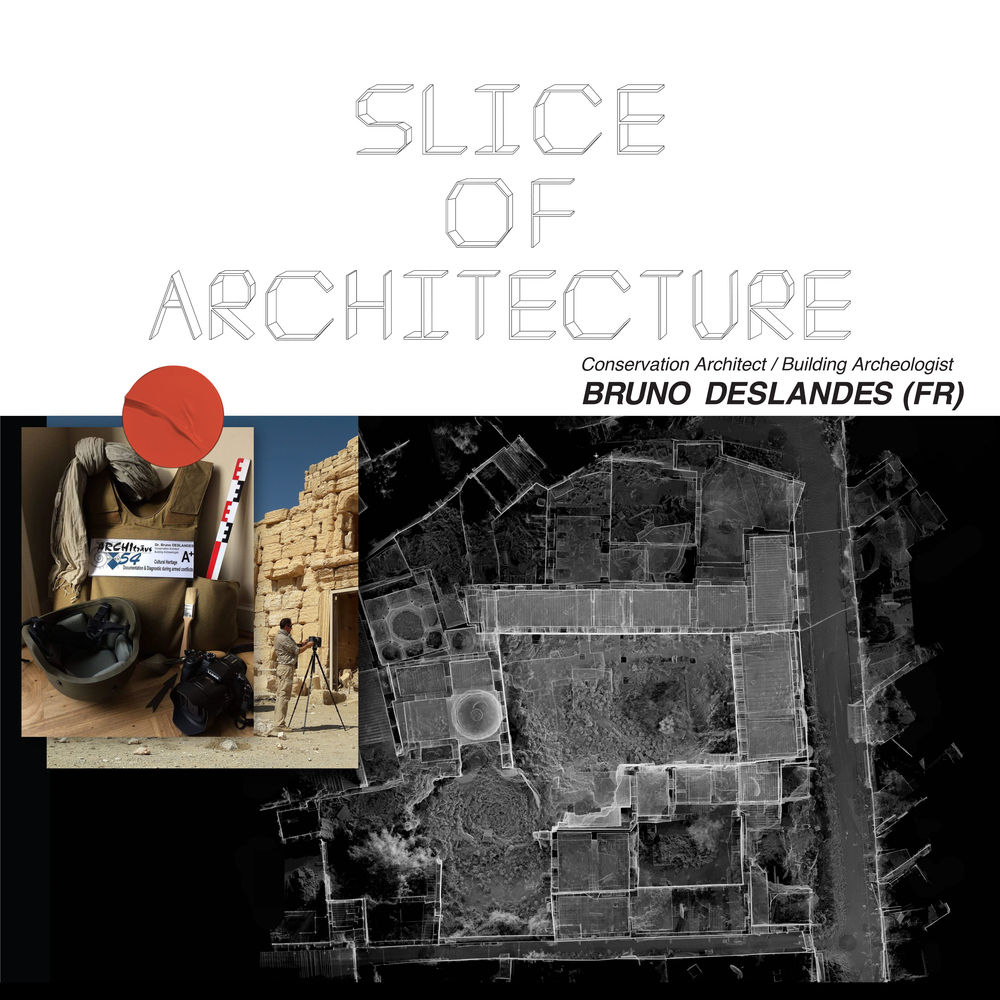SLICE OF ARCHITECTURE: BRUNO DESLANDES (FR)

LECTURE LINK:
https://us02web.zoom.us/j/89612996679?pwd=N3JKOWlEU3B1bTd0S3NRQ01zQ0RWdz09
Meeting ID: 896 1299 6679
Passcode: 691616
New technologies applied to crisis management and recovery: refocusing useful and necessary objectives.
Recent conflicts impose proactive crisis reactions and structured recovery process. In this perspective modern Technologies have a key role to be played.
In addition to documenting/recording/assessing the situation at a certain moment in time, the produced digital copy aims to be part of a wide scientific approach with a very strict methodology. It has for only objective to intervene on the damaged monument, in order to get rid of the pathologies affecting the original, impacting the integrity of its Outstanding Universal Value. What could be more telling than to illustrate this point with mutilated sites as prestigious as those of Palmyra, Aleppo, Homs, Nimrud, Step pyramid of Saqqara, and others.
New Tools are part of a long recovery process involving to in situ initial data collection, detailed proceeding as diagnostic oriented, permanent monitoring of evolutions, temporary and then permanent pathologies solving.Basics have to be recalled as too often the new tools are managed by highly experienced technicians who do not have necessarily the required expertise in the field of cultural heritage conservation. Simultaneously, the Experts remain disconnected from the technical progress they don’t appropriate for their own purpose.This has for main consequence a diversion of data flows from physical interventions to virtual objectives.Public awareness is mixed up with auto appropriation and self-sufficiency from distance (E-sites.visit without any direct contact and emotions). What is different from embodying memories of lost tangible roots, losing by force some already experienced interactions.This becomes an even more important concern after Covid-19 sanitary crisis which initiated a long-term distancing with the original heritage itself.
Bruno DESLANDES is a French conservation architect, and CEO of the Latvia-based company called ARCHItrāvs. He has over 25 years of experiences, and is internationaly recognized for his unique expertise in the field of Emergency documentation and diagnostic of built Cultural Heritage in danger, including when damaged by armed conflicts. Experienced with war zones for more than a decade, he has been deeply involved during the last years in both Syria and Iraq. Holding a PhD in Building archaeology, his methodology during conflicts and post-conflicts interventions is based on very operational approach; from initial assessments till final completion of restoration projects.